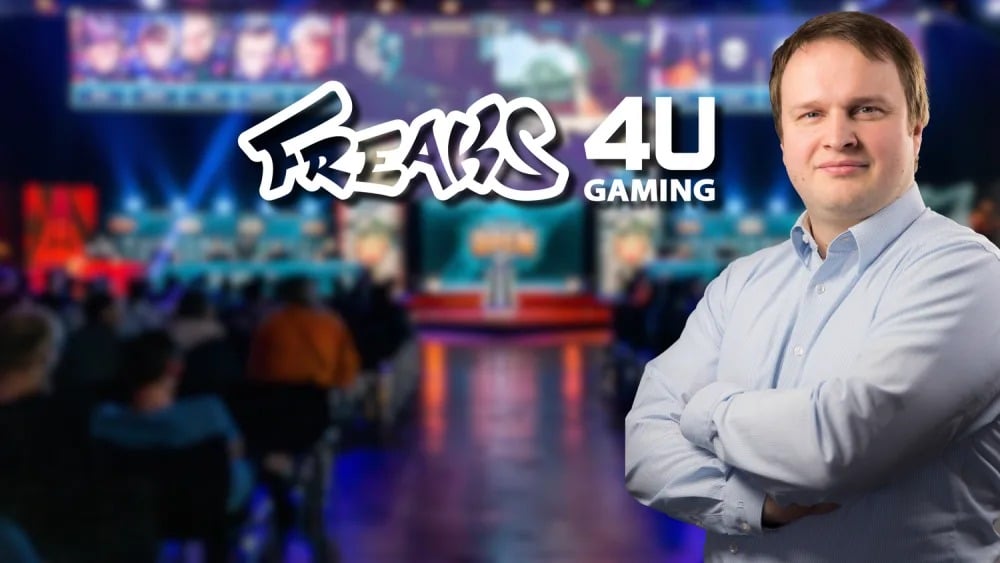The industry faces the challenge of developing sustainable business models and positioning itself more broadly after the so-called eSports winter. Freaks 4U Gaming CEO Michael Haenisch takes an exclusive look back and into the future at eSport
The so-called eSports winter has left its mark. Organizations such as Sprout and the popular community project Summoner’s Inn had to close their doors. The bottom line is that the business models proved to be unsustainable, according to the respective announcements.
Words that can also be read in a similar way at Freaks 4U Gaming. The Berlin-based marketing agency for eSports and gaming was no less affected by the challenges of the time, but managed to turn the corner thanks to a takeover and a significant reduction in costs. A general departure for new shores? “I wouldn’t say we’re completely through, but you can see the first signs of recovery,”
The highs were followed by the lows
To understand the triggers of the so-called eSports winter, you have to look back a little further. The industry has experienced unbridled growth over the last ten years. Gaming and eSports were particularly in demand during the Covid pandemic. To name one example: The ball was resting in the Bundesliga, for example, but the Bundesliga Home Challenge was held on the virtual pitch.
It is also clear that with steady growth comes a certain level of decline. “Back then, eSports was doing extremely well. It felt like every brand wanted to sponsor in some way, it was consumed very heavily. It was simply the topic that was alive and kicking” – and then suddenly ‘it really hit us’. Russia’s war of aggression against Ukraine, inflation. Suddenly investors, sponsors and advertising money collapsed, which “nobody was really prepared for”.
This makes it all the more important to rethink eSports and develop a sustainable model. Essentially, this means diversification. “As a team, tournament or event operator, it’s about reducing our dependence on sponsorship via other revenue streams. At the same time, we should consider how we can further increase the appeal of eSports,” explained Haenisch.
This also means taking one step back and two steps forward: “I find certain concepts interesting in which, for example, you don’t initially receive any money from media partners for broadcasting rights. Several years ago, we concluded an agreement with TV stations such as ProSieben that they could broadcast the League of Legends Prime League for a fee. One possible approach would be to do without this at first, make the content freely accessible and generate a high level of reach and interest through distribution – and then say one step later: ‘I want money for this’.”
Don’t deny cooperation with Saudi Arabia across the board
Speaking of money. Saudi Arabia is increasingly buying into eSports. They recently won the bid to host the Olympic eSports Games – for the next 12 years. In addition, the first Esports World Cup was recently held with record prize money. A blessing for the ecosystem? Or a curse due to dependency? “The eSports winter in particular has restricted many offers. Some tournaments no longer take place in the same form or teams no longer exist because they were unable to secure support from sponsors. This uncertainty coupled with less money in the market is naturally looking for an outlet. Saudi Arabia is opening up new opportunities here and this is leading to a new ecosystem, which can of course be very powerful.” Nevertheless, “I do believe that those responsible are very serious about eSports”.
The desert state is “becoming a serious player in the market. The future will show what influence it will have on the global eSports ecosystem”. However, Haenisch is also clear: “You can’t just boycott and look the other way. You have to think about how you work together, what overlaps there are and what red lines you set yourself.” However, the Freaks CEO does not expect the same fate as the eSports winter, provided there is a broad-based approach. Because “it won’t be enough to focus on the EWC in the summer and then do nothing more. That’s not enough, we need to continue to have a diverse eSports ecosystem. “

